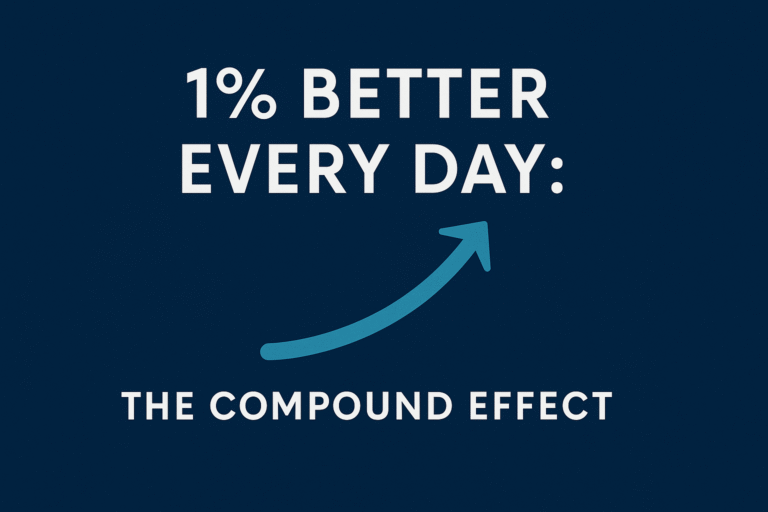Have you ever had a day where you planned to be productive, but by midday, your focus was shot, and all you wanted to do was scroll your phone? You had the time, but not the energy. That’s where energy management comes in.
Most people focus on managing their time, thinking that scheduling their day down to the minute will make them more productive. But time doesn’t mean much if you don’t have the energy to use it effectively. High performers understand that success isn’t about working longer hours—it’s about sustaining peak energy levels throughout the day.
In this guide, we’ll break down the science-backed strategies used by top performers to maximize energy management and maintain laser focus.
Energy Management vs. Time Management: What’s the Difference?
Time management is about organizing tasks and scheduling your day efficiently. Energy management, on the other hand, is about optimizing your mental, physical, and emotional energy so that you can perform at your best, no matter how much time you have.
The Four Pillars of Energy
To maintain high levels of performance, you need to manage four key types of energy:
- Physical Energy – The foundation of all productivity, influenced by sleep, diet, and exercise.
- Emotional Energy – Your ability to stay positive, resilient, and motivated.
- Mental Energy – The ability to focus deeply and minimize distractions.
- Spiritual Energy – The sense of purpose that fuels long-term drive and fulfillment.
By optimizing each of these, you can create a system that keeps you in peak performance mode without constant burnout.
Optimizing Physical Energy for Maximum Focus
Prioritize High-Quality Sleep
Sleep is the foundation of energy management. Without it, everything else suffers. Research shows that even mild sleep deprivation can drastically reduce cognitive function and productivity (Walker, 2017).
Actionable Tips:
- Stick to a consistent sleep schedule, even on weekends.
- Create a pre-sleep routine (dim lights, no screens an hour before bed, meditation).
- Optimize your sleep environment (cool, dark room, high-quality mattress).
Fuel Your Body for Performance
The food you eat directly affects your energy levels and ability to focus. High sugar and processed foods cause energy crashes, while protein and healthy fats provide sustained fuel.
Actionable Tips:
- Eat protein-rich breakfasts to prevent mid-morning crashes.
- Stay hydrated—dehydration can cause fatigue.
- Avoid excessive caffeine; instead, use natural energy boosters like green tea.
Move Your Body Regularly
Exercise isn’t just for physical health—it’s one of the best ways to sustain high mental energy.
Actionable Tips:
- Start your day with a quick workout or walk.
- Take movement breaks every 60-90 minutes (stretching, jumping jacks, or walking outside).
- Use a standing desk or alternate between sitting and standing throughout the day. (If you work from home or at an office)
Mastering Emotional Energy: Managing Stress and Avoiding Burnout
Recognizing Energy Drainers
Not all stress is bad, but prolonged stress drains your emotional energy, leading to burnout and poor decision-making.
Common energy drainers:
- Negative self-talk or constant worry.
- Toxic relationships or unsupportive environments.
- Overconsumption of social media and news.
How to Replenish Emotional Energy
- Gratitude practice: Spend 2 minutes writing down things you’re grateful for.
- Set emotional boundaries: Limit interactions with people who drain your energy.
- Engage in hobbies that bring joy and relaxation.
Maximizing Mental Energy: Staying in Peak Focus Mode
Eliminate Decision Fatigue
Every decision you make depletes mental energy. This is why many high performers simplify their daily choices (think Steve Jobs’ black turtleneck routine).
Actionable Tips:
- Plan your day the night before.
- Reduce unimportant decisions (meal prep, outfit selection).
- Automate repetitive tasks (bill payments, grocery lists).
Master Deep Work
Deep work—focused, distraction-free work—is where real productivity happens.
Actionable Tips:
- Time block your most important tasks.
- Use the Pomodoro Technique (25-minute focus, 5-minute break cycles).
- Eliminate distractions (phone on silent, website blockers).
Harnessing Spiritual Energy: The Hidden Key to Unlimited Drive
Find Your Purpose
High performers have a clear sense of purpose that keeps them going even when motivation is low.
Actionable Tips:
- Ask yourself: What impact do I want to make?
- Align daily actions with long-term goals.
- Engage in work that excites and challenges you.
Reflect and Reset Daily
End each day with a quick reflection to maintain alignment with your purpose.
Actionable Tips:
- Journal about what went well and what can improve.
- Set one small goal for the next day.
- Visualize success before going to bed.
Building Your Personal Energy Management System
Step 1: Identify Your Energy Leaks
- Track your energy levels throughout the day.
- Identify patterns—when do you feel most drained?
Step 2: Implement Small, Consistent Changes
- Choose one habit from each energy pillar (physical, emotional, mental, spiritual).
- Start small—don’t overhaul everything at once.
Step 3: Track Progress and Adjust
- Use a habit tracker to monitor changes.
- Adjust routines based on what works best for you.
Final Thoughts: Energy is the Real Currency of Success
At the end of the day, your success isn’t determined by how many hours you work—it’s determined by how effectively you manage your energy. By focusing on energy management, you’ll not only stay productive but also avoid burnout and maintain a fulfilling, high-performance lifestyle.
So, what’s one habit you can implement today to boost your energy? Start small, stay consistent, and watch your focus and productivity soar!
References
- Covey, Stephen R. The 7 Habits of Highly Effective People. Free Press, 1989.
- Loehr, Jim, and Tony Schwartz. The Power of Full Engagement: Managing Energy, Not Time, Is the Key to High Performance and Personal Renewal. Free Press, 2003.
- Baumeister, Roy F., and John Tierney. Willpower: Rediscovering the Greatest Human Strength. Penguin Books, 2011.





